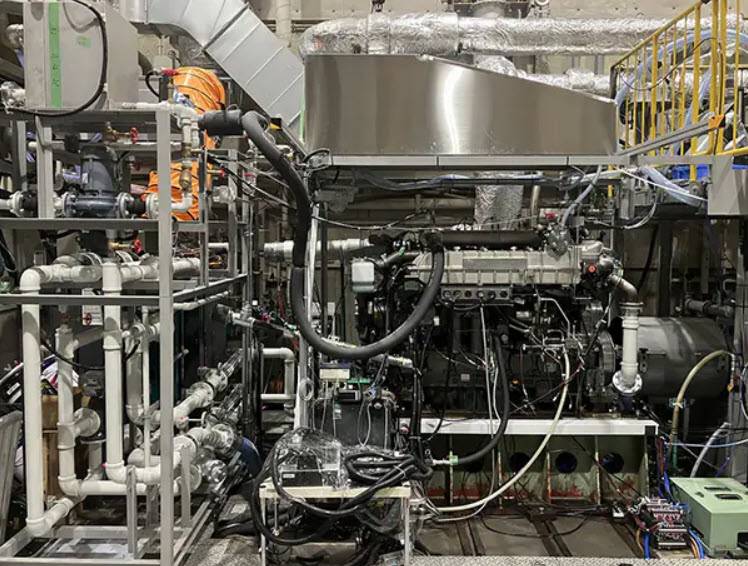Yanmar Accelerates Hydrogen Engine Production for Zero-Emission Ships
Key Ideas
- Yanmar Power Technology has received approval from the Japanese government for its hydrogen-fueled engine and fuel cell production plans.
- The company aims to establish an advanced production system for zero-emission ships powered by hydrogen and batteries.
- Yanmar plans to accelerate its hydrogen engine production targets from 2050 to 2040 with support from the Zero Emission Ship Construction Promotion Project.
- The goal is to achieve 100% carbon-neutral marine power products, including hydrogen engines, by 2045, surpassing IMO's greenhouse gas reduction targets.
Yanmar Power Technology has been granted approval by the Japanese government for its production plans related to hydrogen-fueled engines and fuel cells. The company's project is focused on creating a sophisticated production system to develop zero-emission ships that are powered by a combination of hydrogen and batteries. In 2023, Yanmar introduced a hydrogen fuel cell system for marine applications, showcasing its commitment to sustainable energy solutions. Moreover, the successful onshore testing of a pilot-ignition hydrogen 4-stroke high-speed engine for power generation in coastal vessels, achieving an output of around 500 kW, marks a significant milestone. This testing was conducted as part of the Nippon Foundation's zero emission ship demonstration experiment. With the backing of the Zero Emission Ship Construction Promotion Project, Yanmar is determined to expedite its hydrogen engine production targets to meet the goals by 2040, a decade earlier than initially planned. The company's ambitious aim includes ensuring that by 2045, all marine power products are 100% carbon-neutral, which would not only comply with but exceed the greenhouse gas reduction targets set by the International Maritime Organization (IMO). This strategic move by Yanmar signifies a significant step towards embracing sustainable practices and driving innovation in the maritime industry, emphasizing the importance of transitioning towards cleaner energy sources for a greener future.
